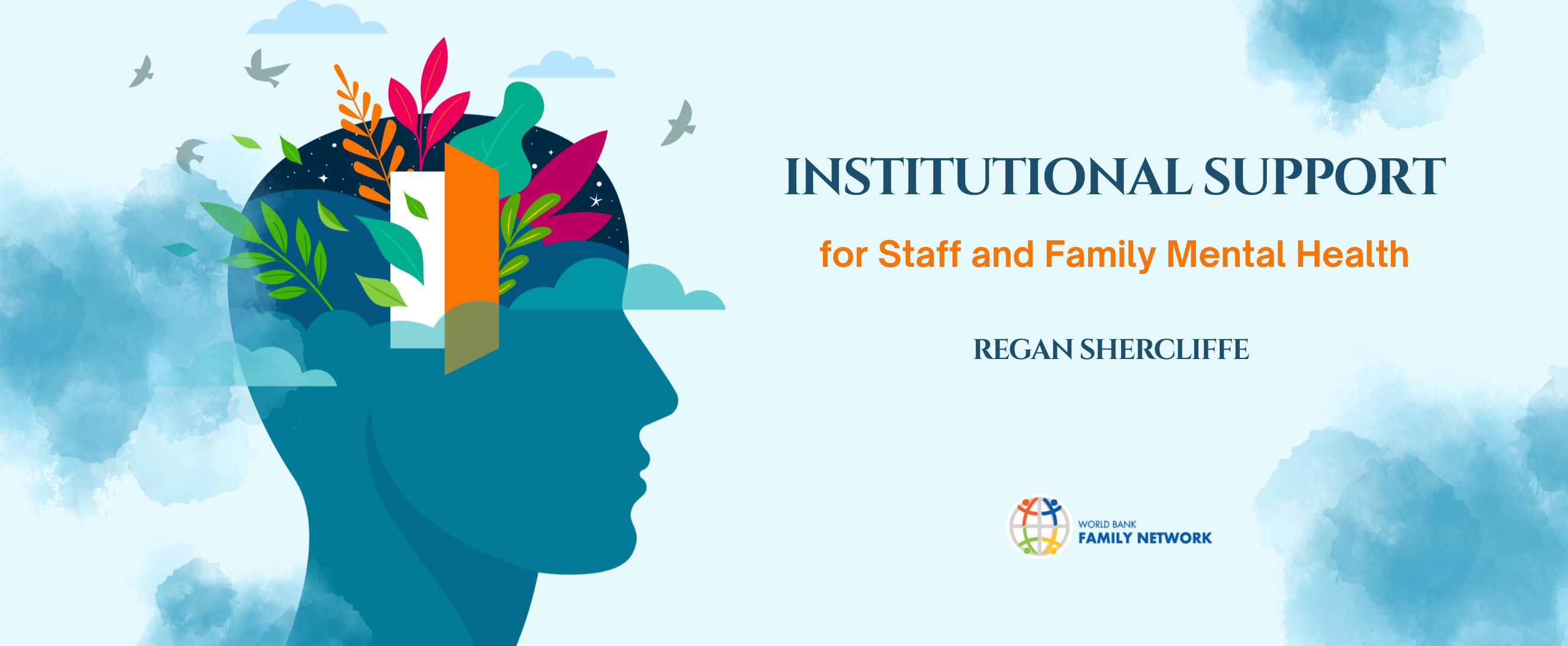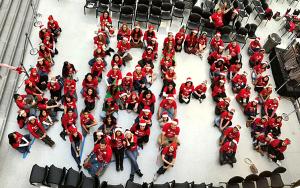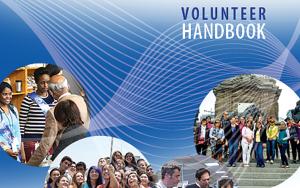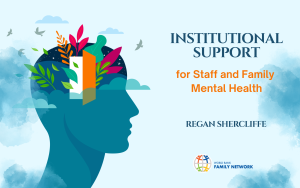
Institutional Support for Staff and Family Mental Health
Staff and families at the World Bank Group regularly face significant transitions - such as international relocations, new assignments, and adjustments to new environments. These periods can be stressful and disruptive, making family support especially vital. When the organization recognizes and addresses the needs of both staff and their families, it fosters wellbeing and helps them adapt more smoothly during times of change.
Why Support Matters - Especially for Mental Health
Supporting families during transitions is critical - not only for individual wellbeing but also for organizational health. Uncertainty and change can trigger stress, anxiety, and isolation for both staff and their families. Access to mental health resources and social support helps families cope, maintain strong relationships, and support one another. When staff know their families are cared for, they can focus on their work, adjust more easily, and safeguard their own mental health. In turn, the organization benefits from stronger engagement, retention, and performance.
Three Areas of Support:
Emotional and Psychosocial Support
Counseling, peer programs, and community-building activities help families reduce isolation and strengthen mental health. Dedicated HR or wellness contacts and facilitated support groups provide safe spaces for connection.
Informational Support
Clear, timely information on postings, benefits, healthcare, local resources, and education helps families prepare and adapt. Orientation sessions and family-focused guides address both practical and personal aspects of relocation.
Instrumental Support
Practical measures - such as relocation allowances, visas, work authorization for spouses, and flexible leave - reduce stress and make transitions manageable. Consistently applying these policies ensures families have the tools to settle successfully.
Examples of Programs and Policies Supporting Staff and Families:
- Flexible Leave and Relocation Benefits: Policies designed to help staff balance work and family life, particularly during moves or assignments that require significant adjustment.
- Health and Safety Directorate (HSD): Provides confidential counseling, crisis support, wellness programs, onsite health services, and remote therapy options.
- Domestic Abuse Prevention Program (DAPP): Delivers confidential counseling, support, and legal consultations for staff and families experiencing domestic conflict or abuse.
- Work Authorization and Career Support: Assists spouses and partners with employment opportunities, including guidance on visas and work permits.
- Flexible Leave and Relocation Benefits: Policies that help staff balance work and family responsibilities, particularly during moves or new assignments.
The Role of Family Support During Transitions
Relocations, reassignments, or changes in contract status can be especially challenging for families. Access to emotional, psychosocial, informational, and practical support helps them manage uncertainty and stress. When family needs are recognized and addressed, staff can focus on their work, adapt to new environments, and maintain their wellbeing, benefiting both the individual and the organization through stronger retention, engagement, and performance.
The Better Together Mental Health Strategy and the World Bank Family Network
The World Bank’s Better Together Mental Health Strategy affirms that family wellbeing is central to staff mental health and organizational strength. The strategy focuses on enriching staff experience, decentralizing support to reach families worldwide, and strengthening partnerships across the Bank and beyond.
The World Bank Family Network (WBFN) plays a vital role, offering orientation sessions, career support, peer groups, and social activities that help families adjust and reduce isolation. Better Together amplifies this work by listening to staff and families, using feedback and data to adapt programs and resources, and ensuring FSN initiatives are widely recognized and supported. Better Together amplifies this work by listening to staff and families, using feedback and data to adapt programs and resources, and ensuring FSN initiatives are widely recognized and supported.
By advocating for WBFN, the strategy highlights its essential role in helping families thrive during transitions - and in turn, strengthening resilience and success across the institution.






